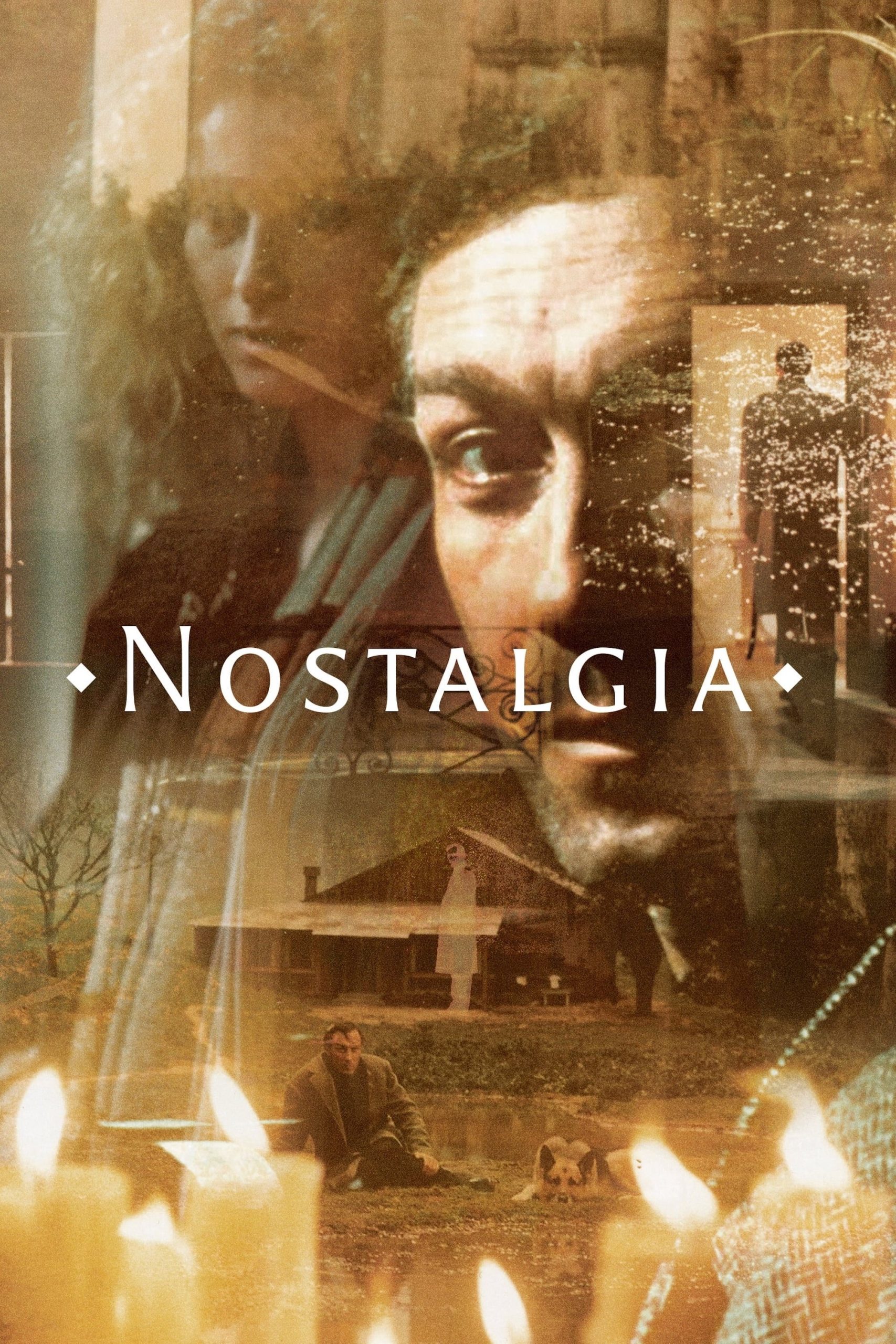
A Russian poet and his interpreter travel to Italy to research the life of an 18th-century composer.
23 Jan Nostalghia (1983)
Architectural Poetry: the Form of Angst
Writing film comments is a true pleasure — there is nothing else like it. We have the freedom to assume that you, dear reader, have already seen plenty of descriptions about the story, the beauty, the meditative nature, the ambiguous metaphors, the sculpting of sound, the nature of created memory versus the myth of place. Because IMDB is such a wonderful resource, you may even already know that Eugenia found her child in ‘The Vampire Chronicles’ — suggested by Pitt because of her role here.
We can assume all that and go off on a single tangent of interest: I am fascinated by novel uses of architecture in film. Not just use of wonderful sets like Zeffirelli’s ‘Hamlet.’ Not just buildings as metaphor (‘Life as a House’) but as a character (‘Liebestraum’) or as the camera (Welle’s ‘Othello’). Most impressive are when the whole world of vision, the entire conception of the film is architectural, forming the fundamental basis of all the concepts.
‘Belly of an Architect’ is one approach. It’s rather explicit and conflates the life, body and environment of a man into one construction. Clever idea, and in the hands of a master. But I think it still clumsy by Greenaway standards. Here we have another solution to the problem. A whole lot less explicit. Less baggage in working to make sense. More freedom in merging dreams with ‘reality.’ But similarly set in a ruined Italy, here rural. Similarly motivated first by space. But where Greenaway’s camera has a painterly-like static stance, Tarkovsky’s drifts to explore the space but is similarly static in that it runs continuously from that moving perspective. (This is similar to the approach of memory invested in form in ‘Last Year at Marienbad.’)
And what drifts! Sometimes it seems like tens of minutes. Sometimes it dwells on marvellously poetic details. Sometimes the actors seem to be slowly animated frescoes on damaged walls, with their faded colours and edges as if they were painted by Rublev. Sometimes the space contains another space, either a landscape or a dream space. Sometimes the space contains, sometimes it releases. Sometimes it contains water, sometimes excluding it sometimes both. Sometimes after you feel you have explored a space thoroughly, he languidly reveals a whole new insight. Sometimes it produces spatial impossibilities. Always the notion of space pre-exists the conceptions we receive. Always, the poet’s challenge is defined in terms of the elements of built form.
I only know a few others of Tarkovsky’s work so far but his breadth already amazes, though they appear superficially similar. I think I would recommend ‘Rublev’ as a first. It makes the work less for a film like this, because you already know how he projects the creative angst of the artist from the character into the folds of your mind. How he invents an architectural eye by long continuous shots anchored to the earth (even when in a balloon), but freely fluid. Always curious, always searching.
This is a life-altering work. I recommend it.
Posted in 2002
Ted’s Evaluation — 4 of 3: Every cineliterate person should experience this.


No Comments